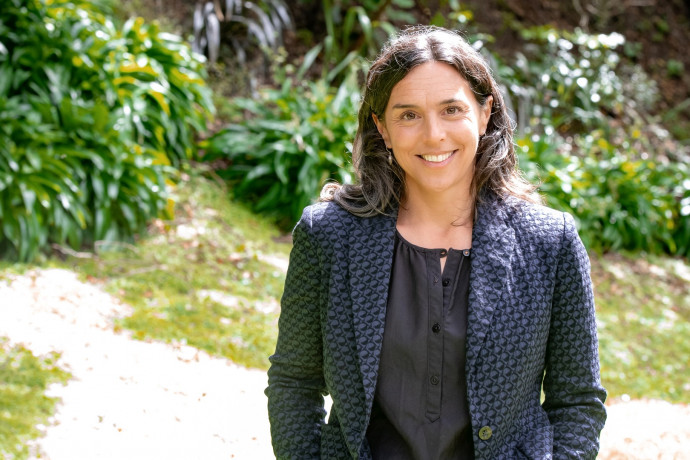2020 Te Puāwaitanga award: Self-determination for Māori through political economy and environmental research

Associate Professor Maria Bargh (Te Arawa, Ngāti Awa) has been presented the Puāwaitanga Award by Royal Society Te Apārangi for making a distinctive contribution to Te Ao Māori through her internationally recognised research on political economy and environment.
For over two decades, Maria Bargh has made an outstanding and impactful contribution to research within the university and in collaboration with Māori communities. Two interweaving strands of her work—political economy and environment—contribute to self-determination for Māori, build Māori and Indigenous knowledges and practices, and are radically reshaping how Aotearoa New Zealand responds to environmental issues.
Maria contributes to the discipline of political science by highlighting how Iwi entities are key to New Zealand politics and how Māori politics can be shifted from the margins to a cornerstone of understanding of New Zealand politics. With a Ministry for Business Innovation and Employment Te Punaha Hihiko Award, she conducted ground-breaking research into Iwi elections, electoral systems and voting statistics.
Maria’s political economy research increases the impact Māori have at local government levels, through investigating and highlighting unfulfilled obligations of councils to mana whenua in their areas. Local government staff have directly sought her advice on those Treaty obligations, Māori political participation and engagement and advice about online voting for Māori.
Maria’s environmental research includes renewable energy, biodiversity and climate change projects. Her ‘Tika Transition Toolbox’ has been widely discussed and led to her appointment by local government on the Greater Wellington Regional Council Climate Committee. Central and local government are implementing policies around climate change adaptation and Maria’s Toolbox factors Māori rights and interests into transitions to a low carbon economy.
Maria’s research strands prompt change across both the political economy and on environmental issues. Her appointment as a research lead for the BioHeritage National Science Challenge in the area of ‘governance and policy’ highlights her research strength in halting biodiversity decline by ensuring a greater role for Māori in the governance of natural resources and the processes and mechanisms within government which need shifting to enable change.
Maria’s research is inspired by Māori philosophies and contemporary realities and engages with tikanga across her research. Her commitment to kaupapa Māori methodologies means ensuring a significant component of her research is guided by her own hapū and their research needs. Her many publications and submissions on mining complement her role as Minerals Advisor for her hapū. She leads a research collaboration with the Rūnanga, Victoria University of Wellington and Ngā Pae o te Māramatanga, to make hapū lands at Horohoro predator-free.
Maria builds research communities to advance Māori tino rangatiratanga. Many of her students now contribute directly to their own iwi or to Māori research aspirations more generally. She also engages and communicates her research with academic, public and Māori communities across multiple platforms.
Te Puāwaitanga Award:
Te Puāwaitanga is awarded biannually in recognition of research that has made an eminent and distinctive contribution to Te Ao Māori and indigenous knowledge.
Citation:
To Ema Maria Bargh for her distinctive and internationally recognised research on political economy and environment - contributing to hapū, Māori, rangatiratanga and reshaping how Aotearoa New Zealand addresses climate change and biodiversity decline.
